
Misrata: The Gem of Libya's Mediterranean Coast
Misrata is a captivating city nestled along the Mediterranean coast of Libya. Known for its historical significance and vibrant culture, this city offers a unique blend of ancient heritage and modern charm. As you stroll through the streets, you'll encounter a mix of traditional markets, contemporary buildings, and a welcoming atmosphere that reflects the spirit of its people. One of Misrata's most alluring features is its beautiful coastline. The city's beaches are pristine, with soft sands and crystal-clear waters that invite you to relax and unwind. Whether you're looking to bask in the sun or explore the underwater world through snorkeling and diving, the coastal areas of Misrata will not disappoint. History enthusiasts will find plenty to explore in Misrata. The city is home to ancient ruins and historical sites that date back centuries. Notable landmarks include the Misrata Museum, which showcases artifacts from different periods of the city's history, and the lively Old Souk, where you can experience the local culture and shop for traditional crafts and souvenirs. Culinary delights await you in Misrata as well. The city's cuisine is a delightful fusion of Mediterranean and North African flavors. Be sure to try local dishes such as couscous, seafood, and the famous Libyan bread. Dining in Misrata is not just about the food; it's an experience that brings people together to share stories and enjoy the rich culinary heritage of the region.
Local tips in Misrata
- Visit the Old Souk early in the morning to experience the market at its liveliest and find the best deals on local crafts and souvenirs.
- If you plan to swim or dive, check local weather conditions and tides to ensure a safe and enjoyable experience.
- Respect local customs and dress modestly, especially when visiting religious sites and traditional markets.
- Hire a local guide to gain deeper insights into the historical sites and cultural landmarks of Misrata.
- Try traditional Libyan tea at a local café for a taste of the local hospitality and culture.
Misrata: The Gem of Libya's Mediterranean Coast
Misrata is a captivating city nestled along the Mediterranean coast of Libya. Known for its historical significance and vibrant culture, this city offers a unique blend of ancient heritage and modern charm. As you stroll through the streets, you'll encounter a mix of traditional markets, contemporary buildings, and a welcoming atmosphere that reflects the spirit of its people. One of Misrata's most alluring features is its beautiful coastline. The city's beaches are pristine, with soft sands and crystal-clear waters that invite you to relax and unwind. Whether you're looking to bask in the sun or explore the underwater world through snorkeling and diving, the coastal areas of Misrata will not disappoint. History enthusiasts will find plenty to explore in Misrata. The city is home to ancient ruins and historical sites that date back centuries. Notable landmarks include the Misrata Museum, which showcases artifacts from different periods of the city's history, and the lively Old Souk, where you can experience the local culture and shop for traditional crafts and souvenirs. Culinary delights await you in Misrata as well. The city's cuisine is a delightful fusion of Mediterranean and North African flavors. Be sure to try local dishes such as couscous, seafood, and the famous Libyan bread. Dining in Misrata is not just about the food; it's an experience that brings people together to share stories and enjoy the rich culinary heritage of the region.
When is the best time to go to Misrata?
Iconic landmarks you can’t miss
Arc of Marcus Aurelius
Explore the iconic Arc of Marcus Aurelius, a stunning historical landmark in Tripoli that narrates the rich legacy of Roman architecture and culture.
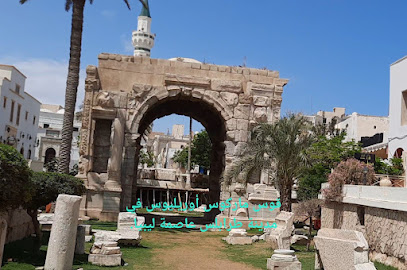
Leptis Magna
Discover the enchanting ruins of Leptis Magna, an ancient Roman city steeped in history and architectural grandeur, nestled along the Libyan coast.
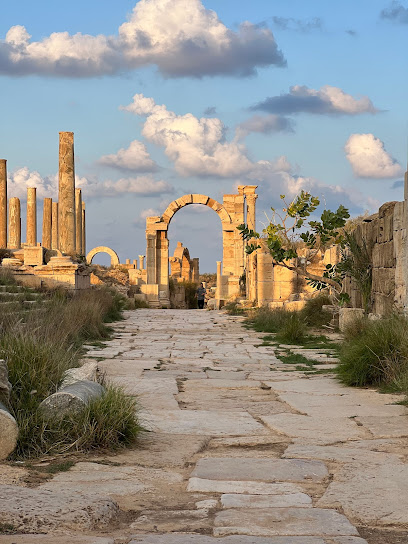
Misrata International Airport
Discover Libya through Misrata International Airport - your gateway to stunning landscapes, rich history, and vibrant culture.
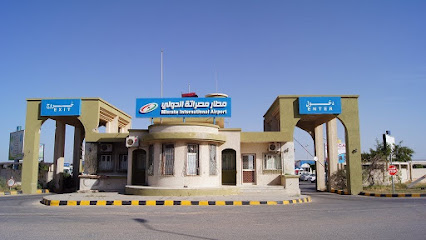
Saraya Museum
Discover Libya's historical treasures at Saraya Museum, where ancient artifacts narrate the story of a rich cultural heritage in Tripoli's Old City.
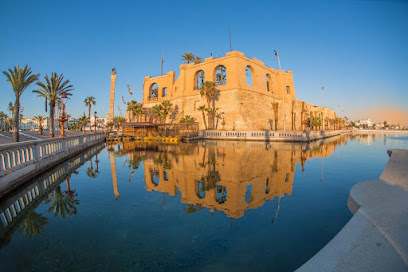
Downtown Garden
Explore the peaceful Downtown Garden in Misrata, a memorial park that blends nature with history for a unique visitor experience.
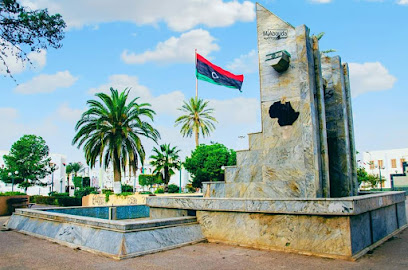
Almasa Park
Discover the tranquility of Almasa Park in Misrata, a beautiful city park perfect for relaxation, family outings, and enjoying nature's beauty.
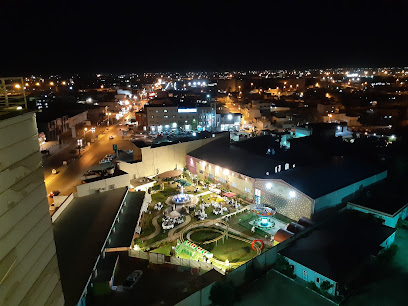
Sewehli Sports Club
Explore Sewehli Sports Club in Misrata, where local soccer passion comes alive amidst spirited matches and community camaraderie.
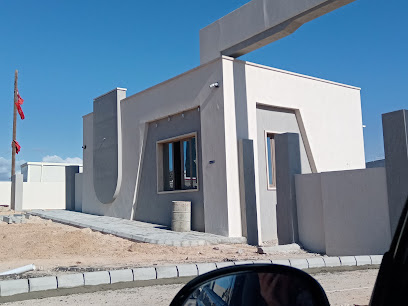
Leptis Magna Museum
Explore the ruins of Leptis Magna Museum, a UNESCO World Heritage Site showcasing the majesty of Roman civilization and archaeological wonders.
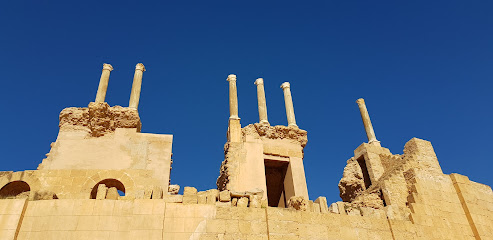
Misrata Port
Experience the vibrant culture and rich history at Misrata Port, a lively Mediterranean seaport in Libya offering fresh seafood and local charm.
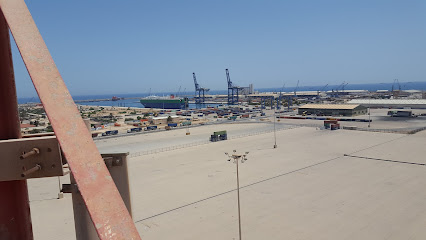
House of Yusuf Karamanli
Discover the beauty and history of the House of Yusuf Karamanli, a stunning memorial estate in Tripoli's Old City, rich with cultural heritage.
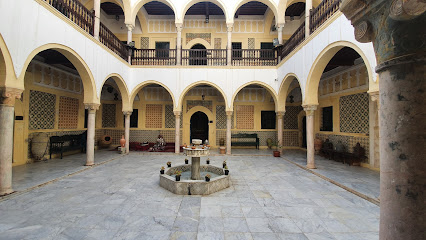
Dees Mosque
Discover the serene beauty of Dees Mosque in Misrata, an architectural gem reflecting Libyan culture and spirituality.
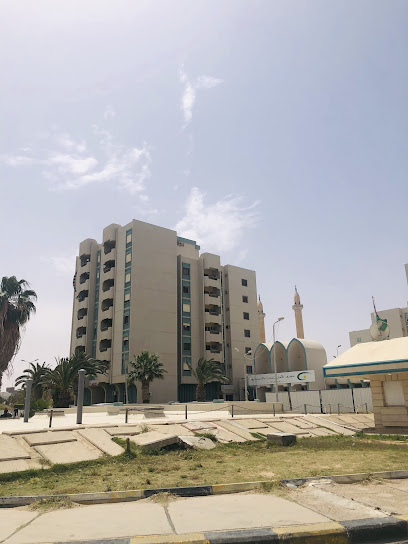
Severan Basilica
Explore the Severan Basilica in Leptis Magna, a stunning historical landmark showcasing the grandeur of Roman architecture and ancient culture.
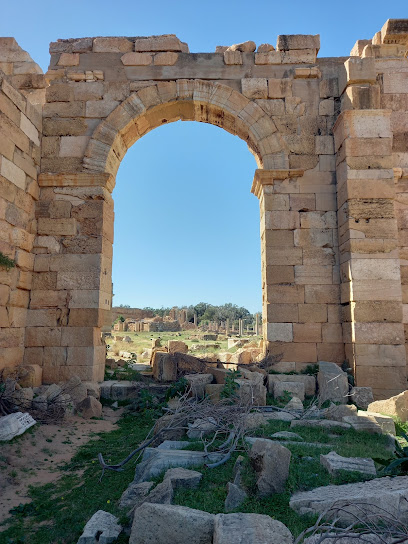
Hamada mosque
Explore the serene beauty and rich cultural heritage of Hamada Mosque in Misrata, a must-visit destination for travelers seeking spiritual and historical insights.
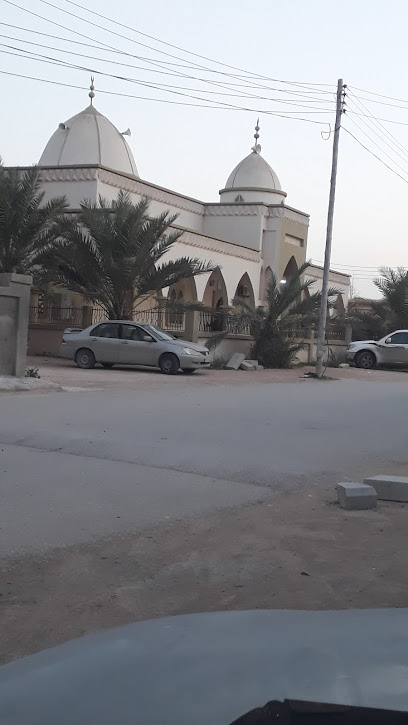
Basilica of Justinian
Discover the ancient splendor of the Basilica of Justinian in Sabratah, a historical landmark that showcases Byzantine architectural brilliance.
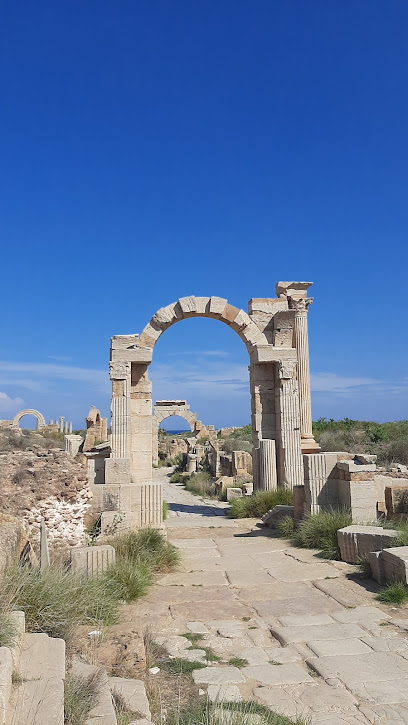
Mausoleum of Bes
Explore the Mausoleum of Bes in Sabratah, a captivating historical landmark showcasing ancient architecture and rich cultural heritage.
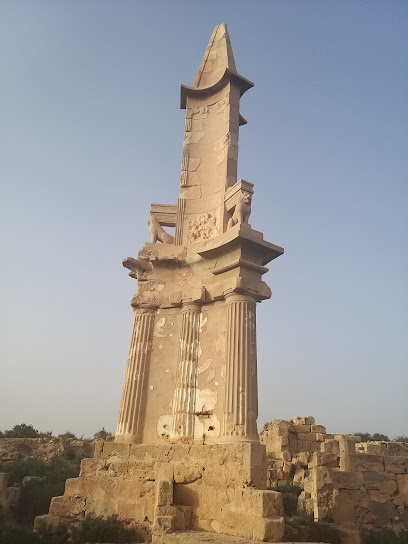
Unmissable attractions to see
Downtown Garden
Discover tranquility and history at Downtown Garden, a serene memorial park in Misrata, perfect for relaxation and reflection.
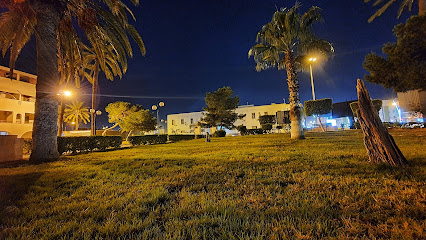
Almasa Park
Discover tranquility at Almasa Park, Misrata's lush city oasis perfect for relaxation, picnics, and leisurely strolls amidst nature's beauty.
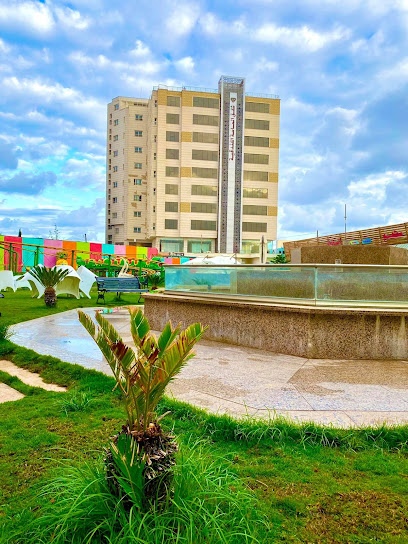
جزيرة دوران اقزير
Discover the serene beauty and rich history of Durun Aczir Island, a perfect coastal escape near Misrata for relaxation and exploration.

Tawergha Springs
Discover the beauty and history of Tawergha Springs, a serene natural oasis in Libya with crystal-clear waters and a rich past.
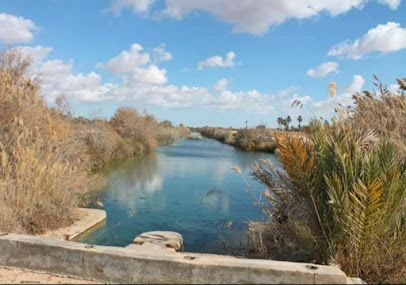
Misrata Museum
Explore Libya's recent past at the Misrata Museum, a memorial to the 2011 war and a testament to the city's resilience.
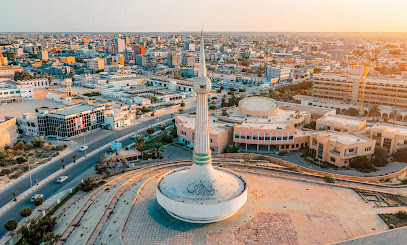
جزيرة المصنع
Explore جزيرة المصنع, a breathtaking island in Zliten, Libya, where stunning landscapes and rich history await every traveler.
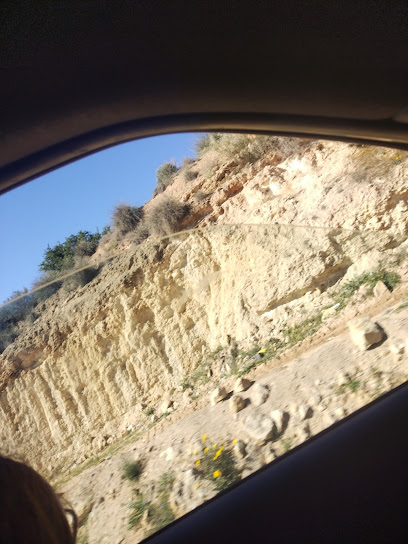
Central garden misurata
Escape to Misrata's green heart: Central Garden offers tranquility with lush landscapes, vibrant flowers, and peaceful pathways for all to enjoy.
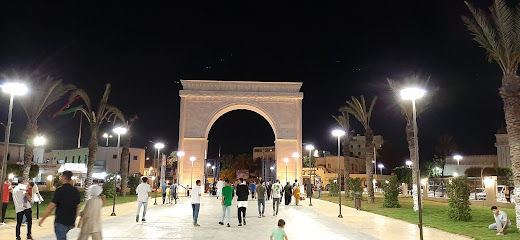
Essential places to dine
مطعم الطازج
Experience authentic Libyan fast food at مطعم الطازج in Misrata - where freshness meets flavor!
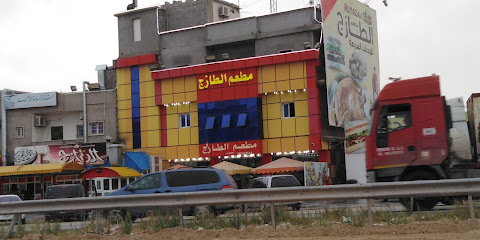
Kudo Restaurant
Experience authentic Libyan flavors at Kudo Restaurant in Misrata – where tradition meets culinary excellence.
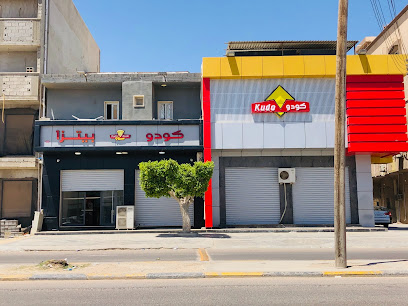
مطعم الحرية للمأكولات التركية والمشاوي
Experience authentic Turkish flavors at مطعم الحرية in Misrata—where every dish tells a story.
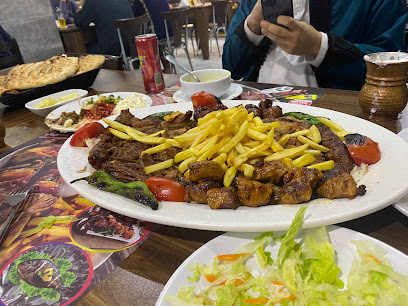
MEATHOUSE
Discover authentic Libyan cuisine at MEATHOUSE in Misrata—where every bite tells a story.
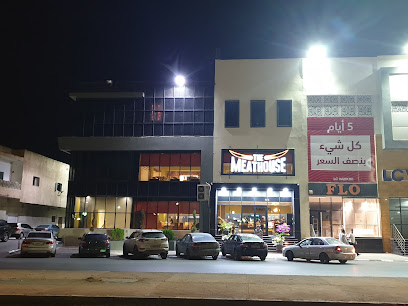
KFC
Experience the comfort of American fast food at KFC Misrata with delicious fried chicken and delightful sides.
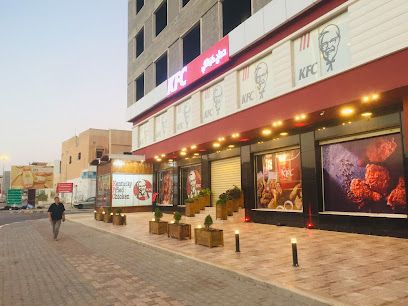
BURGER HOUSE - برجر هاوس
Discover delicious burgers and delightful dining at Burger House in Misrata - where local flavors meet modern tastes.
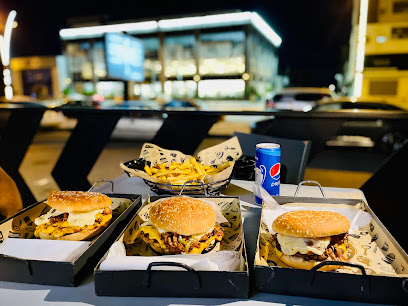
Tamiat AlSham
Discover the rich flavors of Libya at Tamiat AlSham, Misrata's premier restaurant offering authentic dishes in a warm atmosphere.
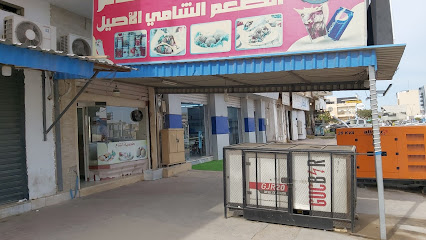
مطعم سميني انت
Discover the best seafood dining experience in Misrata at مطعم سميني انت, where fresh flavors meet authentic Libyan hospitality.
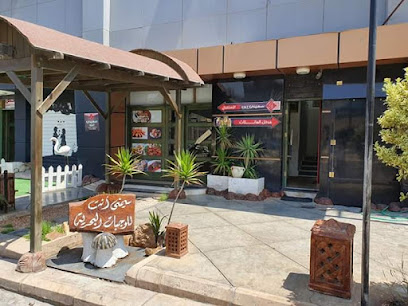
Restaurant KSH
Experience authentic Libyan cuisine blended with international flavors at Restaurant KSH in Misrata.
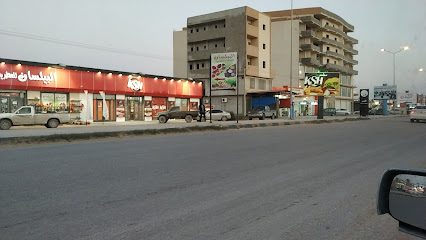
حدائق بابل للعصائر الطبيعية
Experience the freshest natural juices at حدائق بابل للعصائر الطبيعية in Misrata – where every sip is pure refreshment.
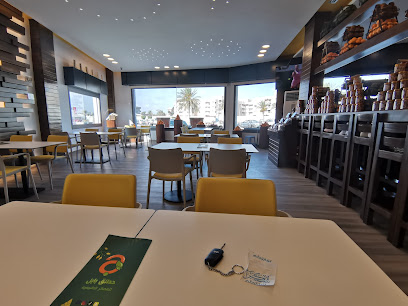
Alanya grill ألانيا قريل مصراتة
Experience authentic Libyan cuisine at Alanya Grill in Misrata - where delicious flavors meet warm hospitality.
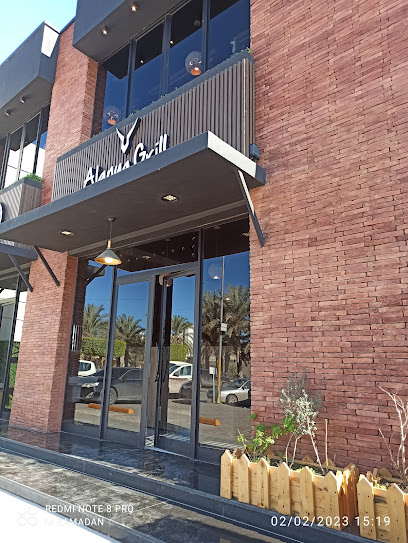
مطعم قرطاج 2
Savor authentic Libyan cuisine at مطعم قرطاج 2 in Misrata – where tradition meets flavor in a welcoming atmosphere.
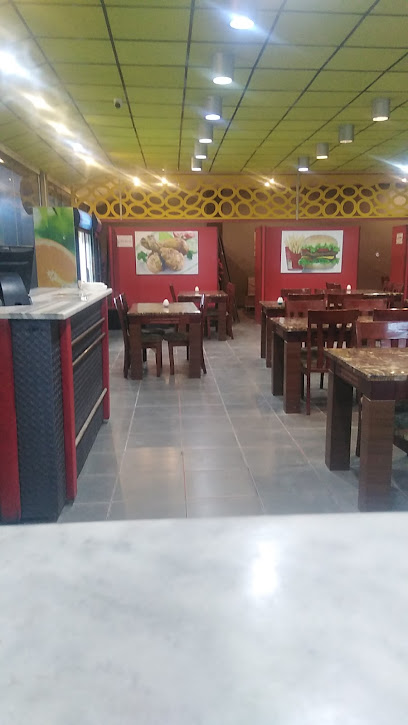
مطعم باب العرب Restaurant Bab Al arab
Discover the vibrant taste of Libya at Restaurant Bab Al Arab - your go-to fast-food spot in Misrata.
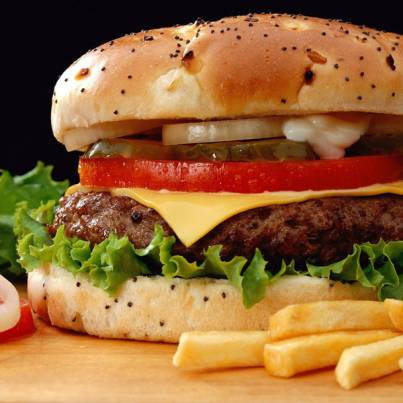
Lavino Fast food
Experience the vibrant taste of Lavino Fast Food in Misrata – where local flavors meet fast service in a welcoming atmosphere.
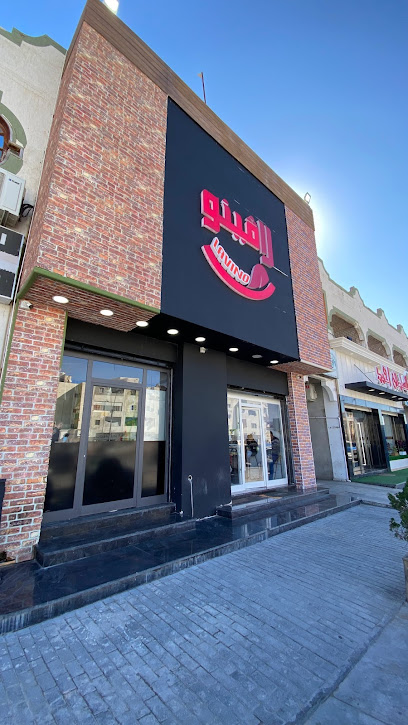
مطعم صوفيا للمأكولات التركية Sofya Türk yemek restoranı
Experience authentic Turkish cuisine at Sofya Restaurant in Misrata - where tradition meets taste in every delightful bite.
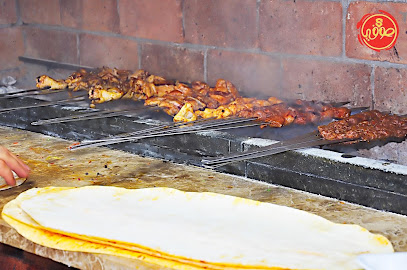
Markets, malls and hidden boutiques
أبان 2
Explore the heart of Misrata at أبان 2, a unique gift shop offering authentic Libyan crafts, souvenirs, and a warm local experience.
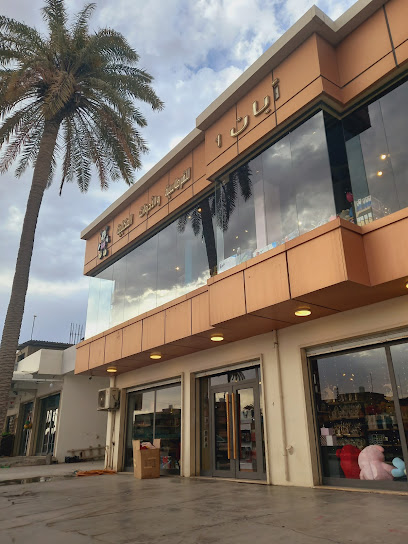
GRAND STORE قراند الخراز
Explore the Grand Store in Misrata for the latest mobile technology and exceptional customer service.
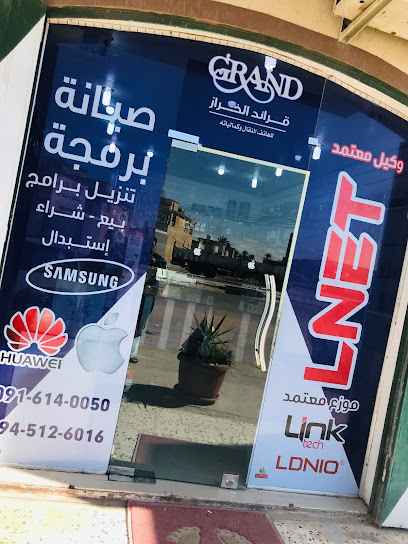
ارميضه للالكترونات والهاتف النقال
Explore the latest mobile technology at Armiida Electronics in Misrata, where quality meets affordability for all your tech needs.
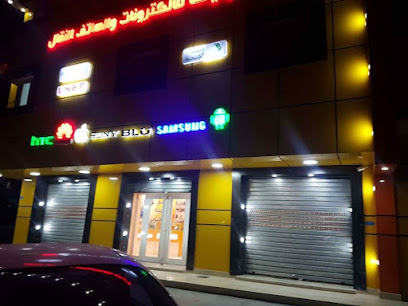
ابناء كاظم للتسوق
Discover traditional Libyan flavors and local products at ابناء كاظم للتسوق in Misrata, a vibrant grocery store experience.
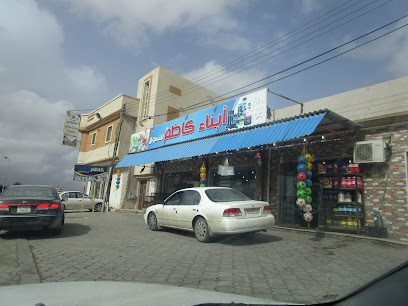
لأجلك سيدتي
Explore the latest fashion trends at لأجلك سيدتي in Misrata, where style meets local charm and quality apparel awaits.
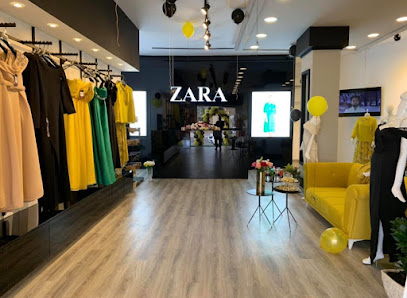
محمصة كيان
Experience authentic Libyan flavors at محمصة كيان, a charming grocery store in Misrata offering local spices, coffee, and culinary delights.
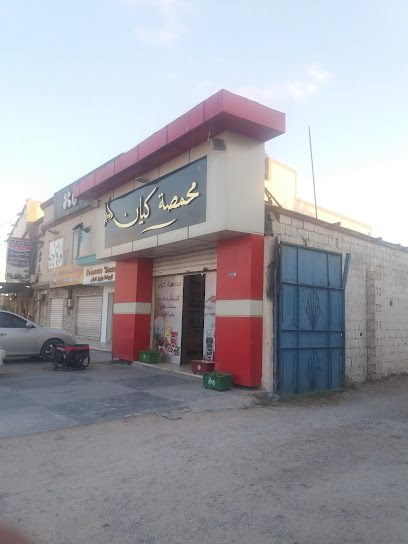
الزين للتسوق مصراته
Explore the diverse shopping and dining experiences at الزين للتسوق مصراته in Misrata, where local culture meets modern retail.

LSG Misurata
Explore the vibrant fashion scene at LSG Misurata, where traditional Libyan styles meet contemporary trends in a unique shopping experience.

خير وبركة للتسوق
Explore the rich fashion heritage of Libya at خير وبركة للتسوق in Misrata, where tradition meets contemporary style.

Riwaq Alqaftan
Explore the vibrant world of traditional Libyan fashion at Riwaq Alqaftan in Misrata, where culture and craftsmanship come together.
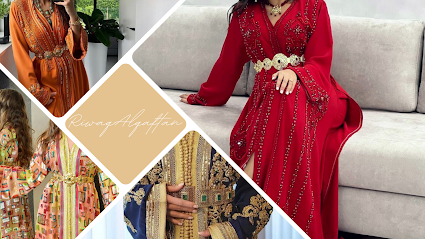
Söz butik
Explore Söz Butik in Misrata for unique Libyan crafts and fashion, capturing the essence of local culture in every piece.

Alborhan Shopping
Discover unique home goods and local craftsmanship at Alborhan Shopping in the heart of Misrata, Libya.

سوق القرية للغذائية والخبر والخبيز
Discover the vibrant culinary treasures at Misrata's Village Market, a must-visit destination for an authentic Libyan experience.

فواد
Explore the vibrant فواد shopping mall in Misrata, where local culture meets modern shopping and dining in a lively atmosphere.

سلخانة علي الشويرف
Discover the authentic flavors of Libya at سلخانة علي الشويرف, a must-visit store in Misrata offering local delicacies and artisanal goods.

Essential bars & hidden hideouts
Babel Gardens
Discover the vibrant flavors of Babel Gardens, Misrata's premier juice bar, where fresh ingredients meet a delightful atmosphere.
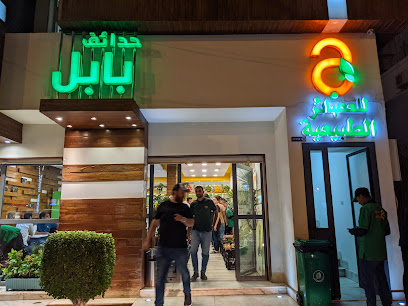
BURGER HOUSE - برجر هاوس
Experience the ultimate burger adventure at BURGER HOUSE in Misrata, where quality meets flavor in every bite.
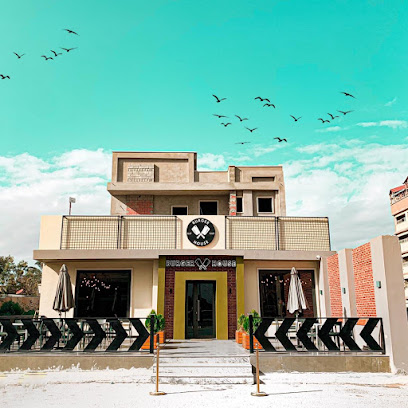
قاعة فنيسيا للمناسبات العامة
Experience the sophistication of قاعة فنيسيا للمناسبات العامة, a premier lounge in Misrata perfect for unforgettable events and celebrations.
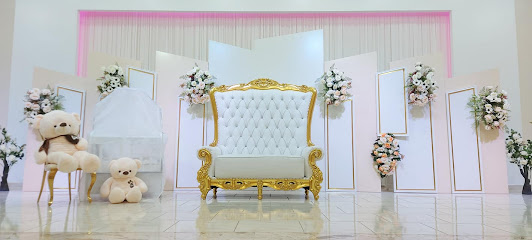
Lavino Fast food
Experience the vibrant flavors of Lavino Fast Food in Misrata, where quick bites meet local Libyan cuisine.
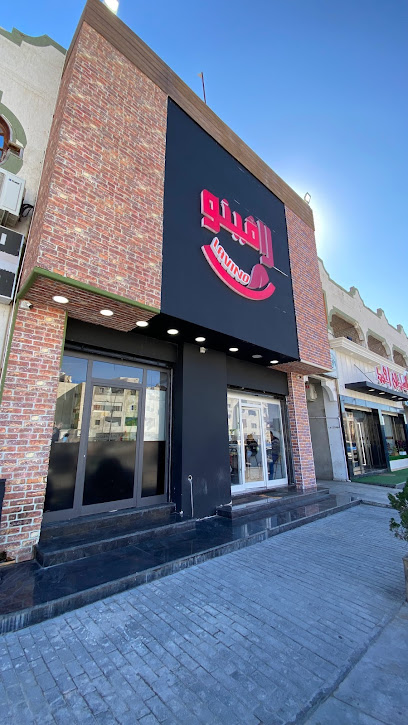
صالة الأميرات للمناسبات
Discover the luxurious صالة الأميرات للمناسبات in Misrata, a perfect blend of elegance and versatility for your special events.
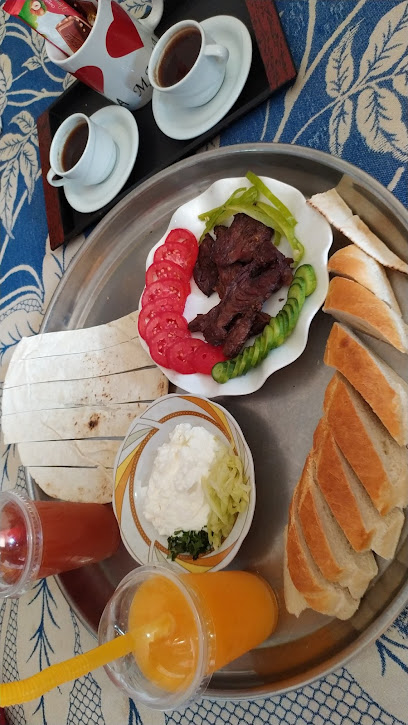
لمسة فرح 3 لتجهيز المناسبات
Discover the elegance of لمسة فرح 3 لتجهيز المناسبات in Misrata, a top lounge for unforgettable events and exquisite ambiance.
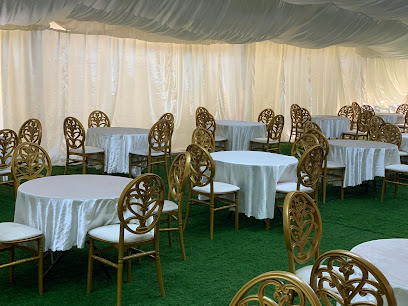
شهرزاد كافي
Discover the vibrant spirit of Misrata at Shahrzad Café, where flavorful hookah and a welcoming atmosphere await every visitor.
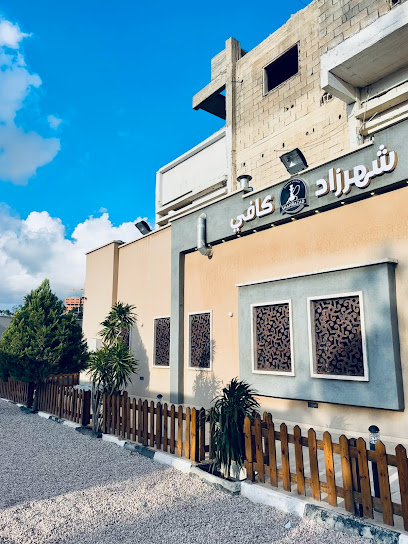
Brioche Valance - بريوش فالانس
Experience the vibrant flavors and warm hospitality of Libya at Brioche Valance, a must-visit bar in Misrata.
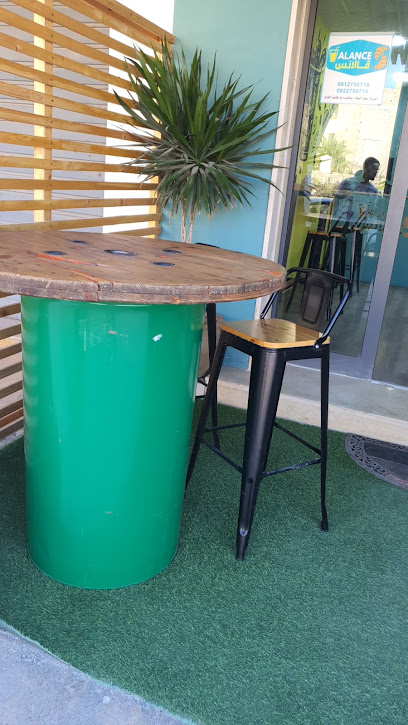
صالة فرحتي للمناسبات
Discover the elegance of Libyan celebrations at صالة فرحتي للمناسبات, the premier venue for unforgettable events in Misrata.
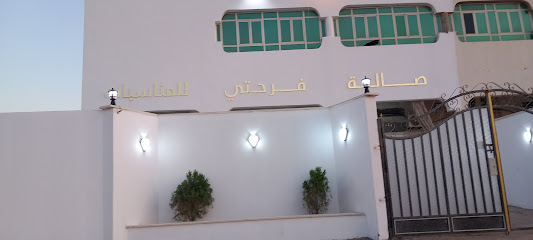
مقبرة السواوة
Explore the serene Al-Sawwah Cemetery in Misrata, a peaceful retreat rich with history and cultural significance, perfect for reflection and contemplation.

قاعة وتين للمناسبات
Discover the elegance of قاعة وتين للمناسبات, a premier lounge in Misrata for unforgettable events and celebrations.
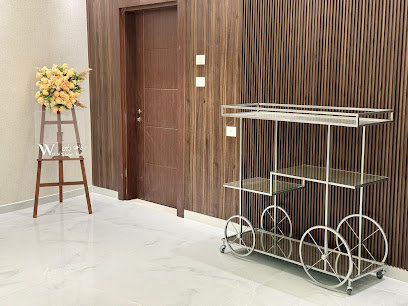
business lounge Misrata airport صالة كبار الضيوف
Experience tranquility and comfort at the Misrata Airport Business Lounge, your peaceful retreat before flying.
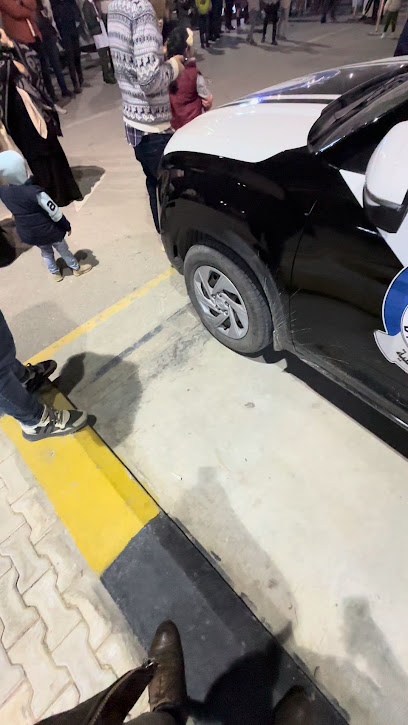
النبكة
Experience the vibrant nightlife at النبكة, Misrata's premier bar with delightful drinks, live music, and a lively atmosphere.

تريلا
Discover the lively ambiance of تريلا in Misrata, where locals and travelers gather for refreshing drinks and a taste of Libyan nightlife.
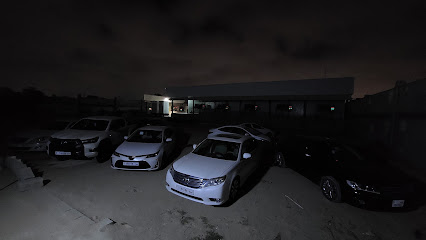
Local Phrases
-
- Helloمرحبا
[marhaba] - Goodbyeوداعا
[wada'an] - Yesنعم
[na'am] - Noلا
[la] - Please/You're welcomeمن فضلك
[min fadlik] - Thank youشكرا
[shukran] - Excuse me/Sorryعذرا
[a'dhara] - How are you?كيف حالك؟
[kayfa halik?] - Fine. And you?بخير. وأنت؟
[bikhayr. wa'ant?] - Do you speak English?هل تتحدث الإنجليزية؟
[hal tatahadath al'inglizia?] - I don't understandلا أفهم
[la afham]
- Helloمرحبا
-
- I'd like to see the menu, pleaseأرغب في رؤية القائمة، من فضلك
[urghab fi ru'yat alqaimah, min fadlik] - I don't eat meatأنا لا آكل اللحم
[ana la akl allahm] - Cheers!صحتين!
[sahhtayn!] - I would like to pay, pleaseأرغب في الدفع، من فضلك
[urghab fi alda'f, min fadlik]
- I'd like to see the menu, pleaseأرغب في رؤية القائمة، من فضلك
-
- Help!النجدة!
[alnajdah!] - Go away!اذهب بعيدا!
[idhab ba'ida!] - Call the Police!اتصل بالشرطة!
[itassil bialshurta!] - Call a doctor!اتصل بطبيب!
[itassil bitalib!] - I'm lostلقد ضللت
[laqad dalalt] - I'm illأنا مريض
[ana mareed]
- Help!النجدة!
-
- I'd like to buy...أرغب في شراء...
[urghab fi shira...] - I'm just lookingأنا فقط أتفرج
[ana faqat atfarij] - How much is it?كم سعره؟
[kam sa'ruh?] - That's too expensiveهذا غالي جدا
[hatha ghali jiddan] - Can you lower the price?هل يمكنك خفض السعر؟
[hal yumkinuk khaff alsa'r?]
- I'd like to buy...أرغب في شراء...
-
- What time is it?كم الساعة؟
[kam alsaa'ah?] - It's one o'clockالساعة الواحدة
[alsaa'ah alwahidah] - Half past (10)الساعة العاشرة والنصف
[alsaa'ah al'ashirah wannahf] - Morningالصباح
[alsabah] - Afternoonالعصر
[aleasr] - Eveningالمساء
[almasa'] - Yesterdayأمس
[ams] - Todayاليوم
[alyawm] - Tomorrowغدا
[ghadan] - 1واحد
[wahid] - 2اثنان
[ithnan] - 3ثلاثة
[thalatha] - 4أربعة
[arba'a] - 5خمسة
[khamsa] - 6ستة
[sitta] - 7سبعة
[saba'a] - 8ثمانية
[thamania] - 9تسعة
[tasia] - 10عشرة
[ashara]
- What time is it?كم الساعة؟
-
- Where's a/the...?أين...
[ayn...] - What's the address?ما هو العنوان؟
[ma huwa al'anaan?] - Can you show me (on the map)?هل يمكنك إظهار لي (على الخريطة)؟
[hal yumkinuk izhar li (ala alkhareeta)?] - When's the next (bus)?متى القادمة (الحافلة)؟
[mata alqadima (alhafilah)?] - A ticket (to ....)تذكرة (إلى ....)
[tazkirah (ila ....)]
- Where's a/the...?أين...
History of Misrata
-
Misrata's history stretches back to antiquity when it was first established by the Phoenicians as Thubactis. The city later became an important Roman settlement, serving as a key center for commerce and trade in the region. Roman ruins and artifacts discovered in the area reveal a rich tapestry of cultural and architectural influences that shaped early Misrata.
-
Following the decline of the Roman Empire, Misrata came under Byzantine control in the 6th century AD. The city then experienced significant transformation during the Islamic conquests of the 7th century. As part of the Islamic Caliphate, Misrata integrated into the broader Arab-Muslim world, further enhancing its strategic and economic significance along the Mediterranean coast.
-
In the 16th century, Misrata became part of the Ottoman Empire. The Ottomans fortified the city, making it an essential node for regional trade and defense. During this period, Misrata grew in importance as a center for trans-Saharan trade, linking the interior of Africa with the Mediterranean world. The city's architecture from this era, including mosques and caravanserais, reflects Ottoman styles and influences.
-
Misrata fell under Italian control in the early 20th century during Italy's colonization of Libya. The city witnessed significant infrastructure development, including roads and public buildings. However, this period was also marked by resistance and conflict, with local populations opposing Italian rule. Key figures in Libyan resistance, such as Ramadan al-Suwayhli, emerged from Misrata, leading efforts to reclaim independence.
-
After World War II and Libya's subsequent independence in 1951, Misrata experienced rapid modernization and growth. The city expanded its industrial base, becoming one of Libya's key economic hubs. The development of the Misrata Free Zone in the late 20th century further boosted trade and investment, positioning the city as a vital economic and commercial center in modern Libya.
-
During the 2011 Libyan Civil War, Misrata emerged as a focal point of resistance against the regime of Muammar Gaddafi. The city endured a prolonged and brutal siege, with significant loss of life and infrastructure. Despite the challenges, Misrata's resistance became emblematic of the broader struggle for freedom and democracy in Libya. The post-war period has seen efforts to rebuild and revitalize the city, honoring the resilience and spirit of its people.
Misrata Essentials
-
Misrata is accessible via Misrata International Airport (MRA), which offers flights from various regional hubs. Alternatively, you can fly into Tripoli's Mitiga International Airport (MJI) and take a 2-3 hour taxi or bus ride to Misrata. Buses and taxis are available for intercity travel, but it's advisable to arrange transportation in advance due to limited public transport options.
-
Misrata has a limited public transport system. Taxis are the primary mode of transportation within the city and are generally affordable. For longer distances, you can hire private cars or use intercity buses. Note that car rentals are available, but driving in Misrata can be challenging due to local driving habits and variable road conditions.
-
The official currency in Libya is the Libyan Dinar (LYD). Credit cards are not widely accepted, so it's essential to carry cash. ATMs are available but may not always function reliably. It's advisable to exchange money at banks or authorized exchange offices and to keep small denominations for everyday transactions.
-
While Misrata is generally considered safer than other parts of Libya, it is still essential to exercise caution. Avoid unfamiliar areas, especially at night, and stay away from political gatherings or demonstrations. Areas with higher crime rates targeting tourists include the outskirts of the city and less populated neighborhoods. Keep your belongings secure and remain vigilant at all times.
-
In case of emergency, dial 193 for police, 190 for medical emergencies, and 191 for the fire department. It is crucial to have travel insurance that covers medical evacuations. Misrata has several hospitals and clinics, but the quality of care can vary, so it's advisable to seek medical help at well-known facilities.
-
Fashion: Do dress modestly, with long sleeves and pants for both men and women, especially when visiting religious sites. Avoid wearing revealing clothing. Religion: Do respect local customs and traditions. Avoid public displays of affection and refrain from discussing politics or religion. Public Transport: Do be polite and respectful to drivers and other passengers. Don't eat or drink on public transport. Greetings: Do greet people with a handshake or a nod. Avoid physical contact with the opposite gender unless they initiate it. Eating & Drinking: Do try local dishes and accept food or drink offerings graciously. Don't refuse hospitality, as it is considered impolite.
-
To experience Misrata like a local, visit the traditional souks (markets) where you can buy local spices, textiles, and handicrafts. Engage with locals who are often friendly and eager to share their culture. Don't miss visiting the Martyrs' Square and the Misrata Museum to learn about the city's rich history. For a unique experience, try the local street food, such as 'bazeen' and 'asida'.
Nearby Cities to Misrata
-
Things To Do in Zliten
-
Things To Do in Leptis Magna
-
Things To Do in Tripoli
-
Things To Do in Sabratha
-
Things To Do in Zurrieq
-
Things To Do in Marsaxlokk
-
Things To Do in Mqabba
-
Things To Do in Zejtun
-
Things To Do in Marsaskala
-
Things To Do in Tarxien
-
Things To Do in Paola
-
Things To Do in Marsa
-
Things To Do in Birgu
-
Things To Do in Rabat
-
Things To Do in Valletta






